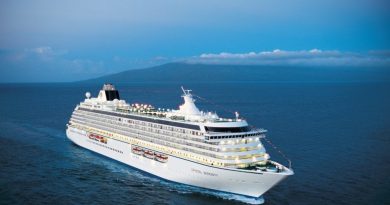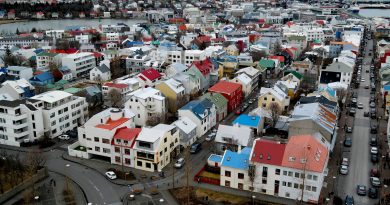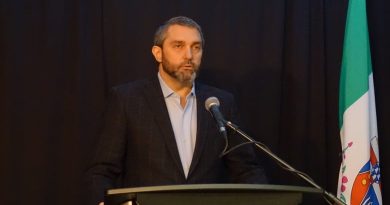Blog: A sharp right turn as the Arctic faces Trump 2.0
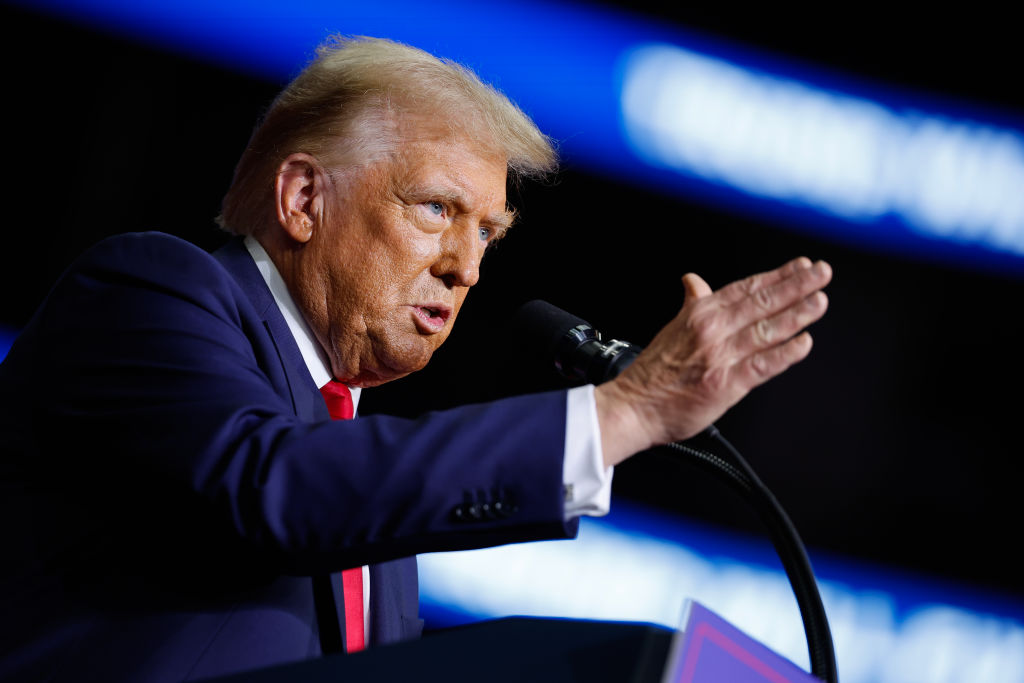
Much of the world is now bracing for yet another period of uncertainty and potential chaos in the wake of the election victory of Donald Trump in the United States last week.
The incoming president’s previous foreign policy platforms were based on widespread disengagement and at times isolationism, questioning American multilateralism, while habitually praising autocratic leaders and criticising US friends and allies, while promising a more transactional approach to diplomacy. The twice-impeached President-elect’s return is likely to have global effects certain to spill over into the Arctic in many ways. This at time when the far north is facing some its most complex security challenges since the cold war along with the ongoing threat of climate change.
One of the most visible policy divides between the Democratic and Republican parties has been over climate change policies, especially after Trump became the dominant voice in the latter. Even before becoming a presidential candidate, Trump had derided climate change as a fiction, with efforts to curb carbon emissions framed as being directly against US political and economic interests. During his first term in office, several domestic environmental rules and protocols were overturned, and Trump pulled the United States out of the 2016 Paris Climate Accords. His government essentially derailed the Arctic Council’s now-notorious May 2019 Ministerial meeting in Rovaniemi when the American delegation refused to support any joint declaration which even mentioned climate change.
President Joe Biden attempted to reverse these policies, bringing the US back to the Paris agreement upon assuming office in 2021, and making climate change one of four pillars in his administration’s Arctic policies announced in October 2022 (along with security, sustainable development and regional and international cooperation), while appointing Dr Michael Sfraga as the country’s first Arctic Ambassador at Large.

However, signs have already appeared that President-elect Trump is again seeking to push forward a denial policy, including once again removing the United States from the Paris agreement, and pursuing a fossil fuel-centred energy policy while downgrading clean energy policies. There are also worries that the incoming government could also pull the US out of the 1992 United Nations Framework Convention on Climate Change (UNFCCC), which would further ostracize Washington from global climate change dialogues and likely also diminish American policy voices in the Arctic. These possibilities may affect the dialogue about to begin this week at the COP29 environmental conference in Baku, which is expected to concentrate on climate finance matters, namely the allocation of funds for developing countries to address environmental threats.
Alaska, which voted solidly for Trump in this election, is likely to be another environmental front line, especially oil and gas drilling. After the first Trump government sought to open up protected areas in the Arctic National Wildlife Refuge to fossil fuel extraction. Last week, the Biden administration started taking steps to ‘Trump-proof’ the refuge by complicating any attempts by the next government to open up drilling projects there.
The future of NATO under a Trump presidency is now clouded, given the incoming leader’s history of antipathy towards the alliance and the preference of some within his inner circle to downgrade Europe as an American security priority in favour of the Asia-Pacific. Trump had even weighed the possibility of the United States leaving NATO altogether, an option which may return despite attempts by the US Congress to set up a legal firewall against such a possibility.
In February this year, Trump in a speech openly called for Russia ‘to do whatever the hell they want’ to any NATO member seen as lagging behind on increases to national defence spending. This year, six out of the seven NATO states in the Arctic have spent more than the preferred two percent of GDP minimum. Canada is the exception at about 1.34%, and with the Justin Trudeau government calling for the country to reach the two percent threshold only in 2032, a stance sure to raise ire with the incoming US administration.
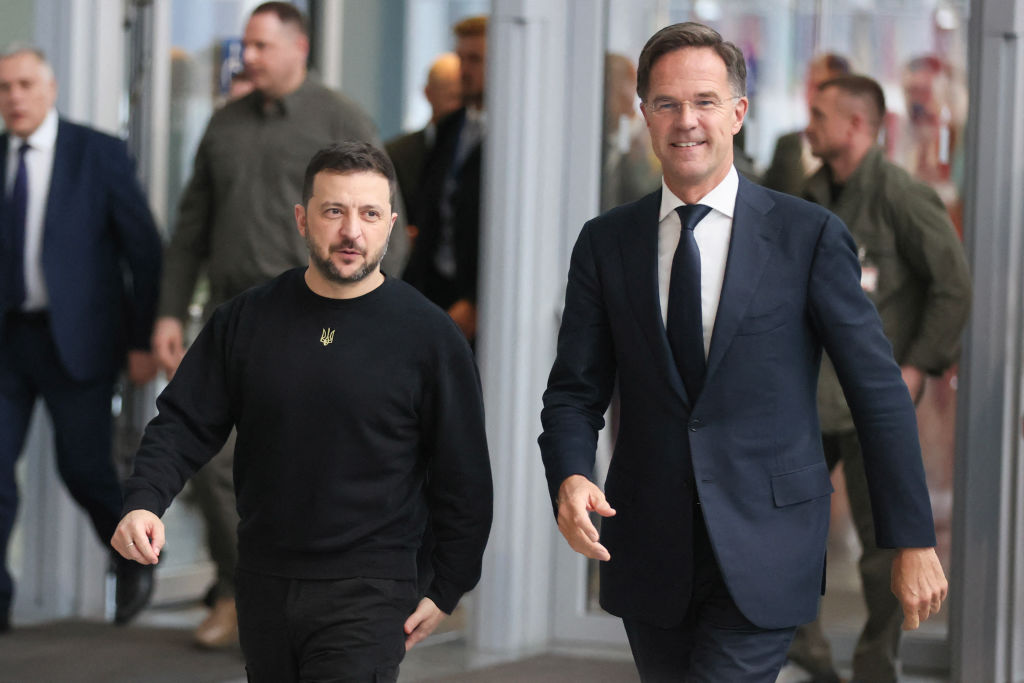
A related concern is how the incoming Trump government will shift policies towards the Russian invasion of Ukraine. As a candidate, Trump had vowed that he could end the conflict within twenty-four hours. Critics have worried that this would mean a peace deal which would validate Russian land seizures and possibly keep Ukraine out of NATO and thus perpetually vulnerable to future attacks, especially since Trump has consistently refused to openly condemn the Putin regime for seeking to annex Ukraine. There have also been suggestions that the incoming US government may ease sanctions on Russian Arctic liquified natural gas (LNG) projects. Even if the new administration does not follow through on its threat to leave the alliance, trans-Atlantic relations are likely to become more brittle, at the time when NATO is starting to pay much closer attention to Arctic regional threats.
During the first Trump government, the US sought a more unilateral Arctic policy which dismissed environmental concerns and placed emphasis on assuring great regional security and American economic interests. The results were mixed at best, starting with the tragicomic proposal in 2019 by the Trump government that the US should outright purchase the island of Kalaallit Nunaat – Greenland from the Kingdom of Denmark, which would have been in contravention of the 2009 Greenland Self Government Act, especially Section 21(1) – ‘Decisions regarding Greenland’s independence shall be taken by the people of Greenland.’ That affair further illustrated both the transactional and low information aspects of the first Trump administration.

Under Trump, the long-muted disagreement between Ottawa and Washington over the legal status of the Northwest Passage spilled into the open during the Rovaniemi meeting, and there is now the possibility of that dispute again complicating cross-border relations. The Trudeau government is finalising a revised Arctic policy for publication by next month, which would include the naming of a new Canadian Arctic Ambassador.
The icebreaker debate is likely to be revived under the new administration, as well as a resumption of the at best erratic approach to the issue seen during the previous Trump government. In 2020, a memo released by the Trump government included orders for a ‘fleet’ of new icebreakers be in place by 2029. Thus far, no new icebreakers have been deployed, and of the two polar-capable ice vessels the US Coast Guard currently operates, the heavy icebreaker Polar Star was commissioned in the early 1970s, and the Healy had to undergo extensive repairs before resuming its work this October.
Last July, the Biden government endeavoured to address this shortcoming, and promote greater cross-border Arctic cooperation, by cosigning the Icebreaker Collaboration Effort, also known as the ICE Pact, with the governments of Canada and Finland to jointly build icebreakers for their use as well as potentially for sale to other regional allies. Balance of power was very much one goal in mind as Moscow continues to develop its own icebreaker fleet, with Russia’s newest nuclear-powered icebreaking ship, Chukotka (Чукотка) launching last week, and China’s fourth icebreaker, the Jidi (极地) / Polar Region, was completed in June of this year. Whether this agreement will withstand a Trump presidency’s derision for multilateral cooperation, especially in strategic matters, is an open question.
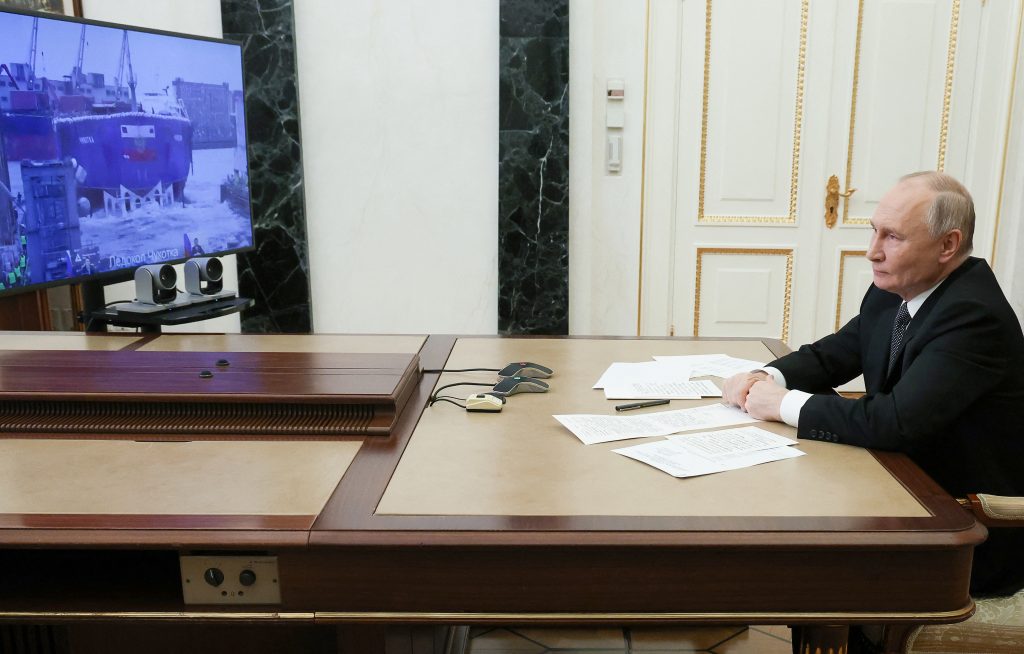
As the Rovaniemi summit illustrated, the incoming Trump government’s relationship with the Arctic Council may also be precarious. In 2025, the chair of the group will rotate from Norway to Denmark, (with debates ongoing as to what degree Greenland should participate), with the Russia question likely hovering over those proceedings. Russia engagement with the Council has been limited since early 2022, and reports surfacing last month that Russian climate change data was being purposefully withheld from elsewhere in the region has been a direct knock on the Council’s main mandate to promote far north environmental protection.
Meanwhile, since its full invasion of Ukraine two years ago, Russia has been more open to closer Arctic cooperation with China, India, and potentially other fellow members of the expanded BRICS group. American disengagement from the Council could place the group in a much weaker position, both in terms of its abilities to address Arctic environmental challenges and to act as a town hall for regional summitry.
There are still many uncertainties as to what degree the incoming US president’s bombastic and often undiplomatic rhetoric will ultimately become policy next year. Based on Trump’s previous tenure, the next term could nonetheless spell a difficult time for the Arctic, on several fronts. How the region, and not just its governments, will respond is a crucial question which will soon need to be answered.
Related stories from around the North:
Canada: Canadian military says it has tracked, stopped China surveillance in Arctic waters, The Canadian Press
Finland: Icebreaker cooperation with U.S.-Canada among topics in Finland’s prez, Trump call, Yle news
Denmark: Nordics consider joint procurement of infantry fighting vehicle, The Independent Barents Observer
Iceland: Arctic allies meet in Iceland to tackle growing security challenges, climate, Eye on the Arctic
Norway: On Trump’s election day, a nuclear-capable B-52 bomber flew over northern Norway into Finland for training, The Independent Barents Observer
Russia: Russia says it has no illusions about Trump, will robustly defend its interests, Thomson Reuters
Sweden:Government ‘prepared’ for a Trump win, Swedish FM, Radio Sweden
United States: Harry S. Truman carrier strike group on exercise inside the Arctic Circle, Alaska Public Media

